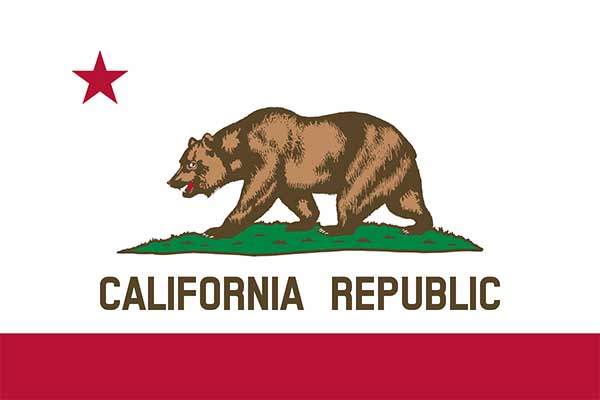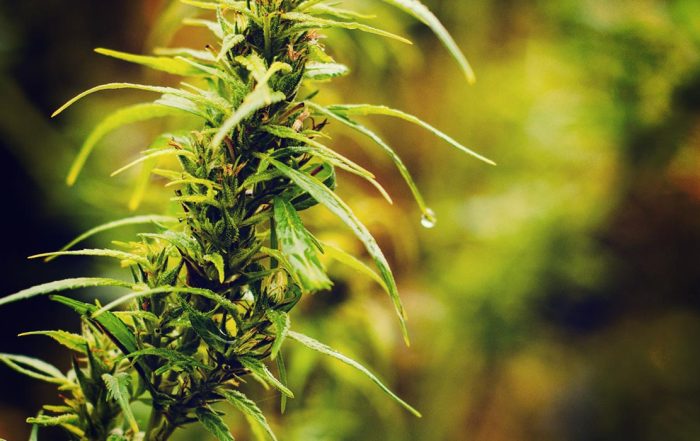California Marijuana Laws
Historically, the majority of California residents are long-time supporters of cannabis. The state was first to put a medical marijuana program in place and voters passed the Adult Use Marijuana Act in 2016 nearly 20 years later. Adults can buy, possess or gift up to 1 ounce of marijuana and 8 grams of concentrates.

LATEST NEWS
Latest News
LAW BREAKDOWN
LAW BREAKDOWNS
California marijuana laws allow adults to possess, use and cultivate cannabis for personal consumption. The state has the oldest medical marijuana system in the country, and residents can now also legally enjoy the drug for recreational purposes.
Possession
Possession and use of cannabis has been legal for adults in California since residents approved Proposition 64 (the Adult Use of Marijuana Act). Residents can legally possess 1 ounce of flower or 8 grams of marijuana concentrates without penalty. Possession of quantities exceeding these limits is a misdemeanor, subject to up to 6 months in jail and $500 in fines.
It is likewise a misdemeanor to possess the above quantities of cannabis while on school grounds, punishable by up to 10 days in jail and $500 in fines. Possession by someone under age 18 is also a misdemeanor, punishable by up to 10 days at a youth detention center and a $250 fine.
It is a misdemeanor when it is deemed that marijuana is possessed with the intent to supply it. The maximum penalty is 6 months imprisonment and a $500 fine.
| Offense | Penalty | Incarceration | Max. Fine |
|---|---|---|---|
| Up to 1 oz | No penalty | None | $ 0 |
| 28.5 grams or less, over 18 years, and occurred on school grounds |
Misdemeanor | 10 days | $ 500 |
| 28.5 grams or less, under 18 years |
Misdemeanor | 10 days* | $ 250 |
| More than 28.5 grams | Misdemeanor | 6 months | $ 500 |
| *Detention center |
Scroll to see the rest of the table.
Sale and Delivery
Unlicensed sale of any amount of cannabis is a misdemeanor in California, subject to up to 6 months in jail and a $500 fine. Gifts – when nothing else of value changes hands – of no more than 28.5 grams, however, come with nothing more than a $100 fine.
California cannabis laws impose much harsher penalties in cases when a minor is involved. Giving any amount of cannabis to a minor between the ages of 14 and 17 is a felony when the giver is 18 or older and is punishable by between 3 and 5 years in prison. If the child is younger than 14, the penalty is 3 to 7 years in prison.
| Offense | Penalty | Incarceration | Max. Fine |
|---|---|---|---|
| Any amount | Misdemeanor | 6 months | $ 500 |
| Gift of 28.5 grams or less | No penalty | N/A | $ 100 |
| Over 18 years to an individual 14-17 years |
Felony | 3 – 5 years | N/A |
| Over 18 years to an individual under 14 years |
Felony | 3 – 7 years | N/A |
Scroll to see the rest of the table.
Cultivation
Marijuana laws in California allow cultivation of up to 6 plants at home for recreational use. Any more than that is a misdemeanor punishable by up to 6 months in jail and $500 in fines. This limit does not apply to medical marijuana patients.
| Offense | Penalty | Incarceration | Max. Fine |
|---|---|---|---|
| Up to 6 plants | No penalty | None | $ 0 |
| More than 6 plans | Misdemeanor | 6 months | $ 500 |
Scroll to see the rest of the table.
Concentrates
It is legal to possess up to 8 grams of hashish, hash oil, or other cannabis concentrates. Possession of more than 8 grams is a misdemeanor, punishable by up to 6 months in jail and a $500 fine.
The penalty for unauthorized manufacture of concentrates depends on the method used. If the process used involves extraction chemicals, such as butane, it is classed as chemical synthesis. Manufacture by means of chemical synthesis comes with a maximum fine of $50,000 and a prison term of between 3 and 7 years, as decided by the court.
If the method of manufacture involves screens, presses, and any other methods not involving the use of chemical synthesis, the potential prison sentence ranges from 16 months to 3 years, as determined by a court, and a fine of up to $500 is possible.
| Offense | Penalty | Incarceration | Max. Fine |
|---|---|---|---|
| Up to 8 g | No penalty | None | $ 0 |
| More than 8 g | Misdemeanor | 6 months | $ 500 |
| Unauthorized manufacture | N/A | 16 months – 3 years | $ 500 |
| Chemical manufacture | N/A | 3 – 7 years | $ 50,000 |
Scroll to see the rest of the table.
Paraphernalia
Marijuana paraphernalia includes any items used in the cultivation, harvesting, processing, testing, analysis, storage, or use of marijuana. Possession of marijuana paraphernalia is legal in California, but unless authorized by law, it is a crime to sell it, deliver it, possess it with intent to sell it, or manufacture it with intent. Any such offense is a misdemeanor and is punishable by between 15 days and 6 months in jail, and up to $500 in fines.
Any paraphernalia offense involving a minor at least 3 years younger than the offender is also a misdemeanor with a maximum penalty of 1 year in jail, as well as a potential fine of $1,000.
| Offense | Penalty | Incarceration | Max. Fine |
|---|---|---|---|
| Sale, delivery, possession with intent, and manufacture with intent |
Misdemeanor | 15 days – 6 months | $ 500 |
| Involving a minor at least 3 years junior |
Misdemeanor | 1 year | $ 1,000 |
Scroll to see the rest of the table.
Miscellaneous
- It is a felony, punishable by between 3 and 7 years in prison, to use a minor in the illegal sale or transport of marijuana. Inducing a minor to use the drug is also a felony punishable by 3 to 7 years in prison.
- An additional fine of up to $150 is levied against offenders who violate the California Uniform Controlled Substances Act. This is the law that classifies and bans certain categories of legally controlled drugs.
- A person who participates in the illegal marketing of marijuana is liable for civil damages.
- Just as it is illegal to smoke cannabis in public, it is a misdemeanor to loiter in a public place with intent to commit certain violations of the California Uniform Controlled Substances Act. Violations of that law can be punished by suspension of driving privileges, among other penalties.
- Vehicles and other property may be seized for controlled substance violations.
Scroll to see the rest of the table.
Scroll to see the rest of the table.
Medical Marijuana
MEDICAL MARIJUANA
California became the first state in the US to legalize the medicinal use of marijuana when a law was approved by ballot initiative in 1996. The California medical marijuana law removed the criminal penalties for the use, possession and cultivation of cannabis for patients who possess a “written or oral recommendation” from a physician.
QUALIFYING CONDITIONS:
- Anorexia
- Arthritis
- Cachexia
- Cancer
- Chronic Pain
- HIV or AIDS
- Glaucoma
- Migraine
- Persistent Muscle Spasms
- Severe Nausea
- Seizures
- Any debilitating illness where the medical use of marijuana has been “deemed appropriate and has been recommended by a physician”
PATIENT POSSESSION LIMITS:
No possession limits specified. The amount should be “consistent with each patient’s needs.”
HOME CULTIVATION:
Yes, but no cultivation limits are specified. Certain local ordinances ban the cultivation of medical marijuana.
STATE-LICENSED DISPENSARIES:
Yes
CAREGIVERS:
Yes – a primary caregiver is an individual who has consistently assumed responsibility for the health, housing, or safety of a qualified patient. Unless the caregiver is the parent of a qualified patient, caregivers must be 18 years of age or older.
RECIPROCITY:
No
California Marijuana Attorneys
The following California lawyers are actively involved in the practice of cannabis law:








